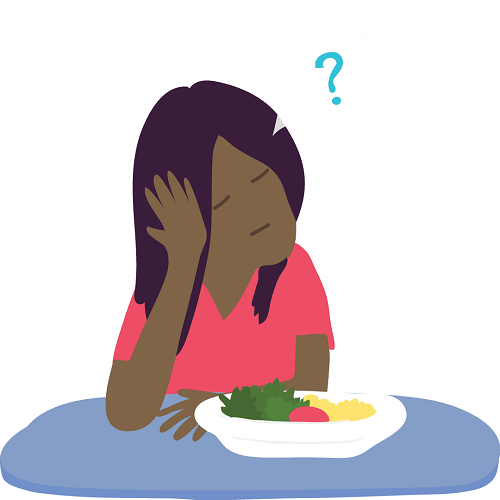Eating disorder: when food starts eating youHow do you feel right after eating? Satisfied? Too full, possibly even guilty? A person with an unusual focus on food usually suffers from eating disorders. Severe, persistent, and harmful food-related thoughts and behaviors are common in people with eating disorders, and as a result, they might eat excessively little or a lot. 
Any disturbance linked to eating habits is called an eating disorder. It is usually associated with behavioral and psychological issues like emotional problems and distressing thoughts. Eating disorder is not lifestyle problem. Instead, it is a serious condition that affects a person's social and physical well-being. Many health complications, like heart and kidney problems, are associated with an eating disorder. It is well known that people who develop the habit of eating too much food lose the ability to absorb the nutrients from the food, and as a result, they suffer from problems like obesity. The three major eating disorders:
People with binge eating disorders eat even when they are already satisfied. They feel extreme discomfort after eating but have no control over it. Because of their overeating habit, they usually feel remorseful and distressed afterward. Overeating is a risk factor for obesity and can result in weight gain. If a person is experiencing purging after binge eating, the condition is called bulimia. Bulimia nervosa sufferers may purge after bingeing by vomiting, using laxatives, engaging in excessive exercise, or even fasting. Because they make up for the extra calories, they frequently manage to keep their weight within the normal range. However, bulimia nervosa can also result in gastrointestinal disorders and cardiac abnormalities. Anoxia nervosa, on the other hand, is the opposite of binge eating and bulimia. A person suffering from anoxia nervosa barely eats at all. Even though they are severely underweight, they may perceive themselves as overweight. Of the three eating disorders, it is the least prevalent but frequently the most fatal. It is unknown what causes eating problems. One of these complicated illnesses can develop depending on a person's environment, culture, mental and emotional health, genes, and family history. Many sufferers of eating problems might not believe they require treatment. Family and friends can therefore be a great help. Treatment plans are made to meet each patient's needs. Talk therapy, dietary guidance, and pharmaceuticals are a few examples. Emotional EatingWhen people eat out of emotion instead of hunger, this is known as emotional eating. Everyone has been in a situation when they binge-eat a whole bag of chips out of boredom or eat cookie after cookie to study for a huge test. Emotional eating, however, can have an impact on weight, health, and general well-being when practiced frequently, especially when done unknowingly. 
The relationship between eating and our emotions is not one that many of us make. However, people can take action to change emotional eating by becoming aware of what causes it. When people are upset, lonely, depressed, anxious, or bored, they frequently resort to food. Small daily tensions can lead someone to turn to food for solace or diversion. However, emotional eating can also be connected to good sentiments, such as the romance of enjoying dessert together on Valentine's Day or the joy of a holiday feast. People pick up emotional eating habits: A child who receives candy after making a significant accomplishment may go on to use food as a reward in adulthood. When offered cookies to stop weeping, a child may come to associate cookies with comfort. Emotional eating tendencies are difficult to "unlearn." But it's conceivable. And it begins with being conscious of what is happening. Finding alternatives to using food as a coping mechanism is necessary for managing emotional eating. For instance, do you immediately go to the kitchen when you get home from school every day? Stop and consider whether you are indeed hungry. Your tummy is grumbling. Do you find it difficult to focus, or are you agitated? Choose a healthy snack to stave off the need until dinner if these symptoms indicate hunger. No real appetite? Consider why finding meals after school has only started to become a habit. Then attempt to alter the pattern. Take a few minutes to transition from one area of your day to the next rather than eating as soon as you walk in the door. Review what transpired on that day. Recognize your reaction: Were you happy? Grateful? Excited? Angry? Worried? Jealous? Missed out? |
 For Videos Join Our Youtube Channel: Join Now
For Videos Join Our Youtube Channel: Join Now
Feedback
- Send your Feedback to [email protected]
Help Others, Please Share









